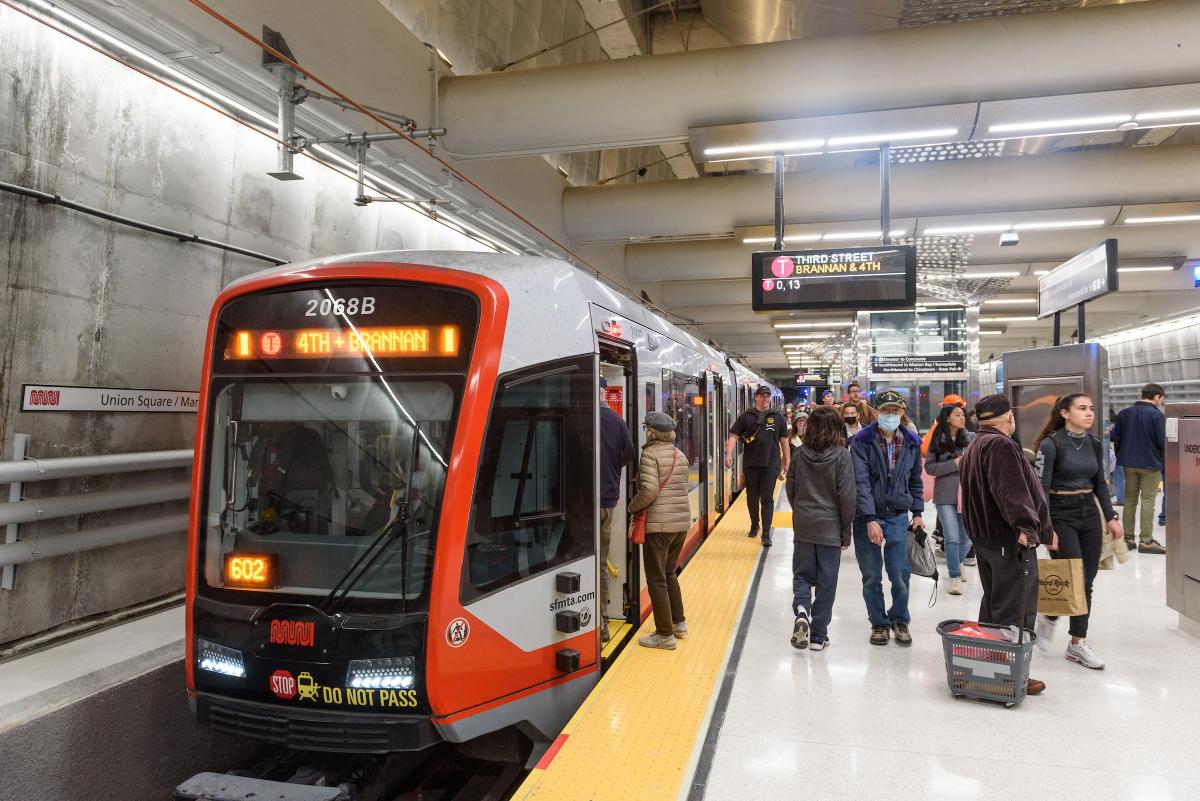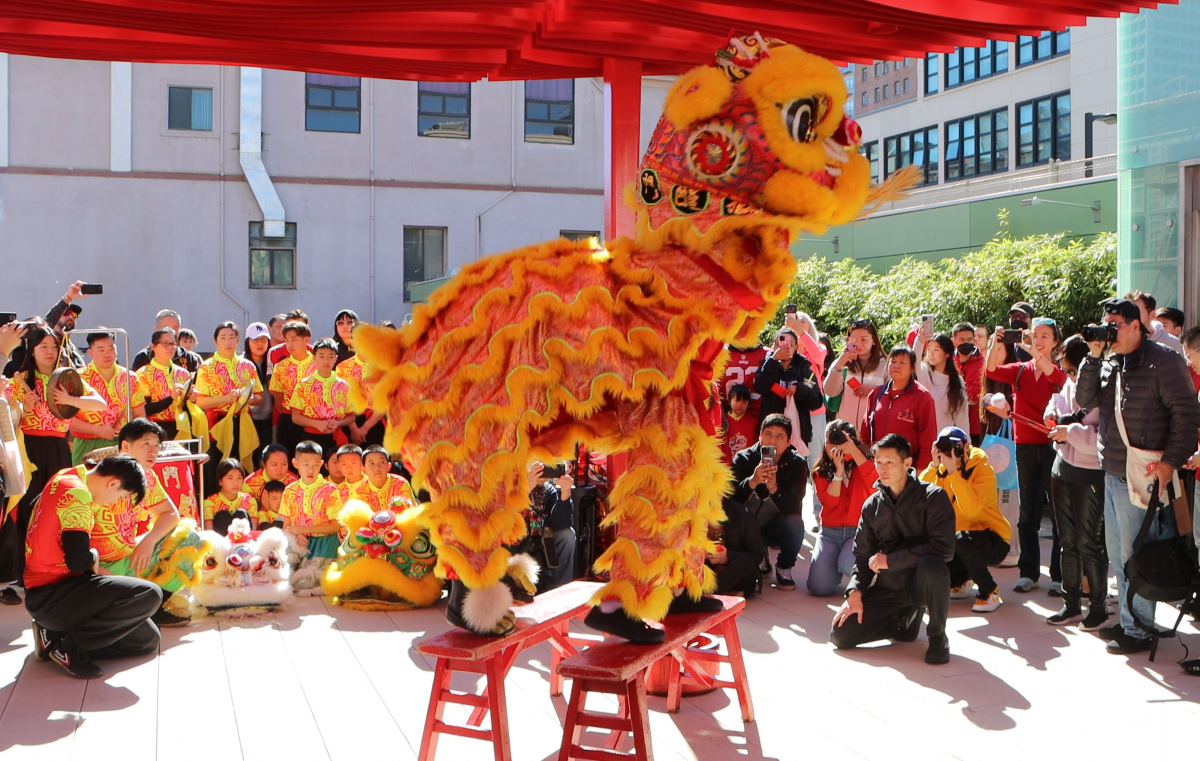 Muni customers catch the T Third Line at the Union Square/Market Street Station on opening day.
Muni customers catch the T Third Line at the Union Square/Market Street Station on opening day.
The Central Subway has connected communities from the Bayview to Chinatown for over a year now. As we celebrate this milestone, we’re proud to share why community feedback has been key to its success.
Meeting feedback drives more transparency
Our project team held community meetings from project design through activation. We gathered feedback from residents, merchants and other stakeholders. We also shared important project updates.
These outreach meetings led to constructive conversations between project staff and the community. Early on, people asked for more transparency. We listened and updated our communication strategy.
Local communities influence station design and safety
Residents and community groups also shaped design and safety for the new subway.
Rooftop plaza
Chinatown and the Tenderloin stand out as two neighborhoods with high population density, yet few public spaces. With this in mind, community groups advocated for an upper rooftop plaza at the Chinatown-Rose Pak Station. This idea was not part of the original construction plan. However, advocates reimagined how the new station could better serve the neighborhood.
Police substation
After 2020, our project team heard many concerns about the safety of residents, especially Asian seniors, in Chinatown. Community groups asked for a police substation on the fare gate level at Chinatown-Rose Pak Station. Originally, this area was designed to have a concession stand. Our agency and city partners heard their concerns and took action. Now, a plan is in motion to build the police substation to increase safety for all Muni customers. Construction is underway.
Bilingual ambassador program
When the project started construction in 2012, we partnered with the Community Youth Center. Our goal: create an ambassador program with bilingual staff to help people navigate construction by Chinatown-Rose Pak Station. For years, ambassadors helped children, families and others get around safely. Now, ambassadors continue to provide support. They help riders understand the Muni Metro map and share any updates to service.
 Chinatown residents and visitors celebrated the first day of the 2024 Lunar New Year with a lion dance at the Chinatown-Rose Pak Station Upper Plaza.
Chinatown residents and visitors celebrated the first day of the 2024 Lunar New Year with a lion dance at the Chinatown-Rose Pak Station Upper Plaza.
Merchants and locals shape relief programs and new artwork
We also partnered with city agencies to address concerns from merchants and involve communities in plans for new artwork.
The Office of Economic and Workforce Development took steps to reduce impacts from construction. It provided support to small businesses near the project site.
The Arts Commission led a huge effort to bring new artwork to the stations. It used funds from the city’s 2%-for-art program and gathered community feedback. Now, new art in the subway reflects the cultural and historical significance of each neighborhood.
What’s next: building on the success of community partnerships
What does the future hold for these new stations? Community partnerships made this project a success, and we’re building on that foundation.
The Community Youth Center we worked with to provide ambassadors now plays an expanded role. The group was selected as the steward for the upper plaza at Chinatown Rose-Pak Station. Now, they develop weekly programming to activate the space and bring people together. You can check out their events by visiting the Community Youth Center webpage for the plaza.
Every neighborhood reveals something different about the people living there. When we build new Metro stations, each one becomes more accessible. The SFMTA will continue to work with community partners in the Yerba Buena, Union Square and Chinatown neighborhoods. We’re thrilled to promote their vibrancy, and how easy it is to visit with a ride on the T Third Line.
Check out this video to hear from SFMTA staff and community partners about how public engagement was pivotal to the project’s success. You’ll learn the details about how it evolved from construction through launch in 2023.
Comments are for the English version of this page.